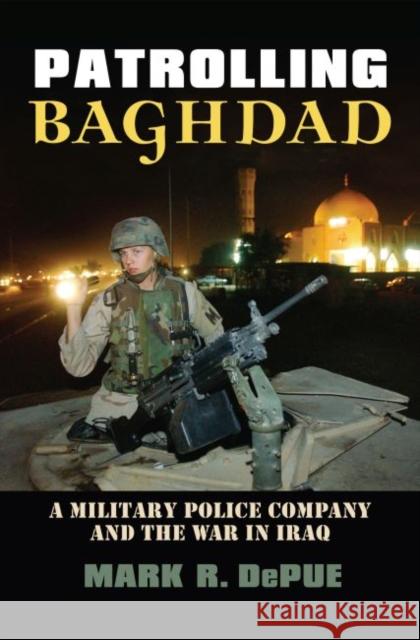Patrolling Baghdad: A Military Police Company and the War in Iraq » książka
topmenu
Patrolling Baghdad: A Military Police Company and the War in Iraq
ISBN-13: 9780700614981 / Angielski / Twarda / 2007 / 312 str.
For the 160 national guardsmen from America's heartland, Baghdad was more than just a long way from home. It also confronted the 233rd Military Police Company with America's most difficult challenge in Iraq: establishing security in a nation rife with religious, tribal, and sectarian conflict and violence.
The first MP company assigned to patrol the heart of Baghdad, the 233rd (from Springfield, Illinois) was a key part of the American occupation forces from April 2003 to April 2004. Charged with helping rebuild the city's police force-not just reopening stations but training a new force to replace its corrupt and hated predecessors-these men and women waged a "military police war" while witnessing all of the larger conflict's central themes, from the shortcoming of prewar planning to ongoing security problems, from media coverage to humanitarian efforts. DePue recounts the 233rd's actions in the streets and alleyways of Baghdad and the inevitable clash of cultures, along with lootings, shootings, roadside and police station bombings, and the inevitable bureaucratic bumbling. Here are the horrors of firefights and summary executions and the drama of the UN bombing. Here too is the untold side of the war, as these volunteers on their own initiative reopened Baghdad schools and took under their wing a Catholic orphanage for handicapped children located in the heart of the city. Based on extensive interviews with the unit's members and others associated with their mission, DePue's eye-opening account also covers what it was like for the 26 women of the unit, how a romance blossomed between two MPs, and how support groups back home-with the help of the Internet-helped families cope with worry over loved ones. The 233rd's story is not only deeply compelling, it is also central to our understanding of one of the most momentous problems of our day and helps us understand what went wrong--and what went right--during that crucial first year. As one of a frustrating war's few success stories, it epitomizes the work of America's citizen-soldiers and attests to the vastly expanded role that guardsmen and reservists now play in our nation's defense.










